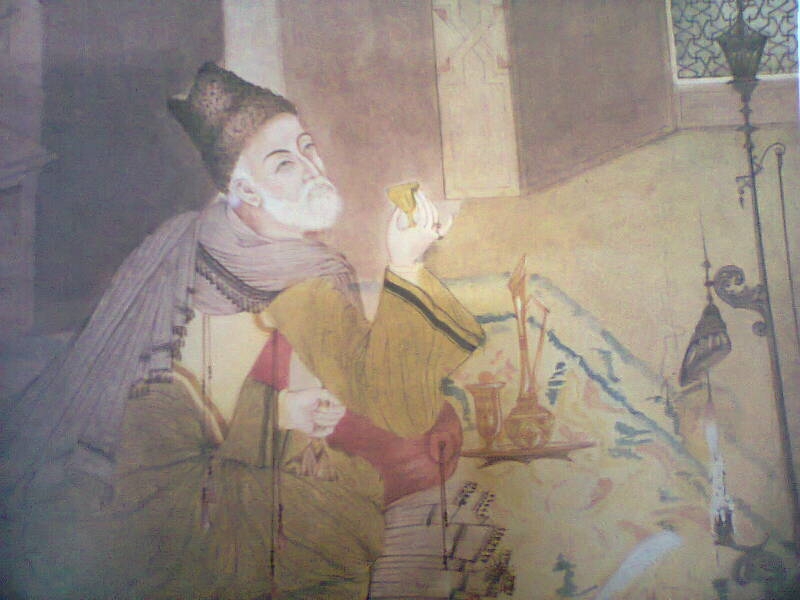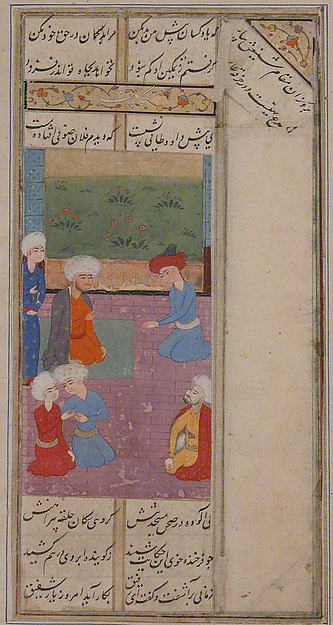FWP:
SETS == DIALOGUE;
HUMOR
ISLAMIC: {10,2}
WINE: {49,1}
This is a truly beloved and extremely famous verse; it was one of those often quoted to me by ordinary people in Delhi and Lahore when they heard that I was studying Ghalib. It was always recited with relish, with a smile at least, and often with laughter.
The two readings of the first line are equally plausible: are the two clauses parallel (1a), or does the second describe the first (1b)? We can't tell, because the whole utterance is not logically structured, but is inshāʾiyah , as Nazm points out. As he also observes, the exclamatory quality is a great part of its charm.
Another part of its charm is the patronizing tone of the second line, spoken as it is apparently either by a group of representative listeners, or by a single patron-like person (male or female) using the first person plural pronoun ham . Complimenting Ghalib on either his mystical tendencies, or his mystical tendencies and his poetic abilities both, the knowledgeable observer finds his work almost enough to make him plausible as a saint.
But of course, the observer remarks in a candid and superior tone, Ghalib's being a wine-drinker (not necessarily a drunkard) prevents any such illusion from developing. The use of the intimate tū for 'you' increases the effect of condescension. And of course it amuses us readers, since we know how long Ghalib's poetry will live, and how little the observer's strictures will matter over time.
Since a closing-verse must contain the poet's pen-name, it is commonly self-referential or self-addressing. Sometimes, as in this case, it seems to represent words spoken to the poet by others. But rarely does this common device appear to such advantage, so subtly humorous on several levels, as it does in this verse. The observer condescends to the poet, while we condescend to the observer, and both processes amuse and delight us. And who's to say the poet is not condescending to us as well?
Mr. Mat Ansari suggests that I should also note here, for comparison, a neat verse from a ghazal that Ghalib incorporated into an ode (Hamid p. 199, Arshi p. 157; it is {249x,9}):
dekhiyo ġhālib se gar uljhā koʾī
hai valī poshīdah aur kāfir khulā
[watch out, if anybody tangles with Ghalib!
the saint is hidden and the infidel, revealed].
For another account of the power of the lover's bayāñ , see {43,1}.
Compare Mir's own equally wry version of this theme: M{84,4}.
'The Saintly Imbiber', by Chughtai, an illustration of this verse (courtesy of Satyanarayana Hegde):


Hali:
For knowledge of Sufism-- about which they say [in Persian], 'it's good for composing poetry'-- he had a special affinity, and numerous books and treatises on mysticism and Sufism had been examined by him. And the truth is that those same Sufistic ideas had made Mirza distinguished not merely among his contemporaries, but also among all the poets of the twelfth and thirteenth [Islamic] centuries.
==Urdu text: Yadgar-e Ghalib, p. 59